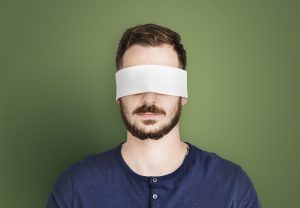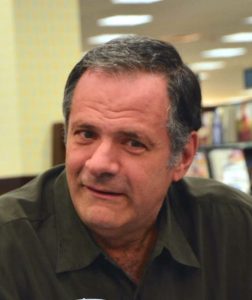
Whether it’s 75,000 words or 120,000 words, almost a ream of paper or a 1.5-megabyte file, what’s sitting in front of you is more than your novel’s manuscript. It’s actually . . . you. Your mind, your soul, your fears, and your loves.
If it’s not, maybe you should consider non-fiction.
Oh, it also consists of your blind spots.
All but a select few of us have blind spots about ourselves. Therefore, it follows that a manuscript created in your image (i.e., your image of the world and the characters you created to inhabit it and live your plot) is also subject to blind spots.
A professional reader, editor, agent, or fellow writer can often see things you can’t. Not so much the big obvious notes, but the little tidbits and details that are easily glossed over while one is deep in the writing process, seeing only the scene before him, hearing only the dialogue the characters are currently speaking. That state of consciousness when writing is the tactical aspect of the craft.
Strategic analysis requires objectivity, and it is easier for the person who didn’t author the work, someone who is unemotional, unattached, and has no memory of the pleasure and pain of birthing your book.
If the above sounds obvious, imagine how obvious conflicts in story structure, missed opportunities, inconsistent character nuances, and plot peccadilloes are to someone with skills, reading and paying attention to these details.
Can my friend point out these blind spots?
If your friend is an editor, professional writer, or reader, then “yes.” Otherwise, friends are mostly just impressed that you actually finished a book. They don’t want to hurt your feelings or discourage you. And they are right! In most cases, our friends can only criticize but not constructively critique. When a professional spots an issue, she can often make suggestions or propose work-arounds that a friend can not.
What can I do?
I get it. Sometimes professional help is out of financial reach, or it’s an uncomfortable ask. If this is your situation, divorce yourself from the work.
If you are working on a screen, print it out or vice versa. Change the environment you read in. (I go to the beach.) As much as humanly possible, rinse all knowledge of the story from your mind. Some folks even read their work backward or in jumbled chapter pieces. This approach takes you out of the momentum of the structure that you know so well and forces more attention on the words on the page. Under that attention, the smaller arcs and the minor shadings appear more clearly.
Here’s a tip if you are doing this yourself: If at any point you find yourself skimming your own work . . . stop!
Skimming means one of two things, both not good.
1) What you are reading is filler, or inconsequential to the story, and it needs to be cut.
2) You know where the story is going, and you are impatient to get there. In that haste, much is missed.
One last note, don’t even think of doing this until the second or third draft. My simple rule for beginning writers is true for us all:
The first draft is you telling YOU the story!
Your first draft is not meant for any other eyes. This school of thought offers some freedom: namely, you don’t have to sweat the small stuff, grammar, spelling, sentence structure, etc. What matters is getting the story on the page.
In the next pass, you can address all those issues and get character names right and check facts and add color, location, furniture, drapes, weather, and maybe a sub-plot or two. But first get the story down.
I can’t tell you how many shiny, well-polished manuscripts have been excellently edited, painstakingly researched, and excruciatingly detailed but still don’t hold together as a readable story. And that is purely a first draft problem, a malady that all the gloss of publishing can’t fix.
 —Tom Avitabile
—Tom Avitabile
Tom Avitabile is a senior v.p. in advertising, as well as a writer, director, and producer with numerous film and television credits. His recent trilogy of novels chronicle the exploits of Science Advisor to the President “Wild” Bill Hiccock. The first of this series, The Eighth Day, became a Barnes and Noble #1 bestseller. His latest hardcover novel, Give Us This Day, also became a number-one bestseller.
